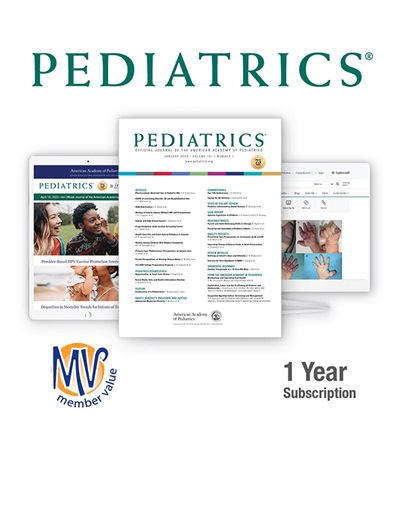通过叙事医学理解复杂护理:一项定性研究。
IF 6.2
2区 医学
Q1 PEDIATRICS
引用次数: 0
摘要
背景和目的当前的培训模式并没有充分准备儿科医生作为团队的一部分来照顾患有医疗复杂性(CMC)的儿童。叙事医学可以促进临床医生和家庭之间的相互理解,共同学习作为协作护理的基础。在本研究中,我们实施了以家庭为主导的跨专业叙事医学培训,并探讨了参与者在复杂护理中的观点。方法对复杂护理中以可委托专业活动(EPAs)为基础的叙事医学训练进行定性研究。我们招募了临床医生和照顾CMC的家庭参加了一系列的6个研讨会。每个工作坊都包括仔细阅读一篇文章和讨论与复杂护理的临床活动相关的内容。参与者在每次研讨会前后定义了EPA。我们对EPA定义和研讨会记录进行了专题分析,并将研究结果综合到一个概念模型中。结果我们招募了3个跨专业队列(共35人),平均参与率为80%。每组至少包括2名家庭伴侣。我们分析了所有队列中18个研讨会的EPA定义和文本。涉及复杂护理视角转变的四个主题出现了:碎片化到整体护理,棘手的复杂性到可导航的复杂性,交易性到关系联系,孤立关怀到社区关怀。研究结果与以患者和家庭为中心的护理相一致。结论参加叙述性医学培训的临床医师和家属对复杂护理中关键临床活动的看法发生了变化。进一步的研究应该探索儿科医生和家庭的合作学习模式,以促进以团队为基础的患者和以家庭为中心的护理。本文章由计算机程序翻译,如有差异,请以英文原文为准。
Understanding Complex Care Through Narrative Medicine: A Qualitative Study.
BACKGROUND AND OBJECTIVES
Current training models do not adequately prepare pediatricians to care for children with medical complexity (CMC) as part of a team. Narrative medicine may foster mutual understanding between clinicians and families with colearning as a foundation for collaborative care. In this study, we implemented family-led interprofessional narrative medicine training and explored participants' perspectives in complex care.
METHODS
We performed a qualitative study of narrative medicine training grounded in entrustable professional activities (EPAs) in complex care. We recruited clinicians and families who care for CMC to participate in a series of 6 workshops. Each workshop involved close reading of a text and discussion related to a clinical activity in complex care. Participants defined the EPA before and after each workshop. We performed thematic analysis of EPA definitions and workshop transcripts and synthesized findings into a conceptual model.
RESULTS
We recruited 3 interprofessional cohorts (35 total participants) with a mean participation rate of 80%. Each cohort included at least 2 family partners. We analyzed EPA definitions and transcripts from 18 workshops across all cohorts. Four themes emerged involving shifts in perspective about complex care: fragmented to holistic care, intractable to navigable complexity, transactional to relational connection, and caring in isolation to caring in community. Findings aligned with elements of patient- and family-centered care.
CONCLUSIONS
Clinician and family participants in narrative medicine training described changes in their perspectives on key clinical activities in complex care. Further research should explore colearning models for pediatricians and families that foster team-based patient- and family-centered care.
求助全文
通过发布文献求助,成功后即可免费获取论文全文。
去求助
来源期刊

Pediatrics
医学-小儿科
CiteScore
12.80
自引率
5.00%
发文量
791
审稿时长
2-3 weeks
期刊介绍:
The Pediatrics® journal is the official flagship journal of the American Academy of Pediatrics (AAP). It is widely cited in the field of pediatric medicine and is recognized as the leading journal in the field.
The journal publishes original research and evidence-based articles, which provide authoritative information to help readers stay up-to-date with the latest developments in pediatric medicine. The content is peer-reviewed and undergoes rigorous evaluation to ensure its quality and reliability.
Pediatrics also serves as a valuable resource for conducting new research studies and supporting education and training activities in the field of pediatrics. It aims to enhance the quality of pediatric outpatient and inpatient care by disseminating valuable knowledge and insights.
As of 2023, Pediatrics has an impressive Journal Impact Factor (IF) Score of 8.0. The IF is a measure of a journal's influence and importance in the scientific community, with higher scores indicating a greater impact. This score reflects the significance and reach of the research published in Pediatrics, further establishing its prominence in the field of pediatric medicine.
 求助内容:
求助内容: 应助结果提醒方式:
应助结果提醒方式:


